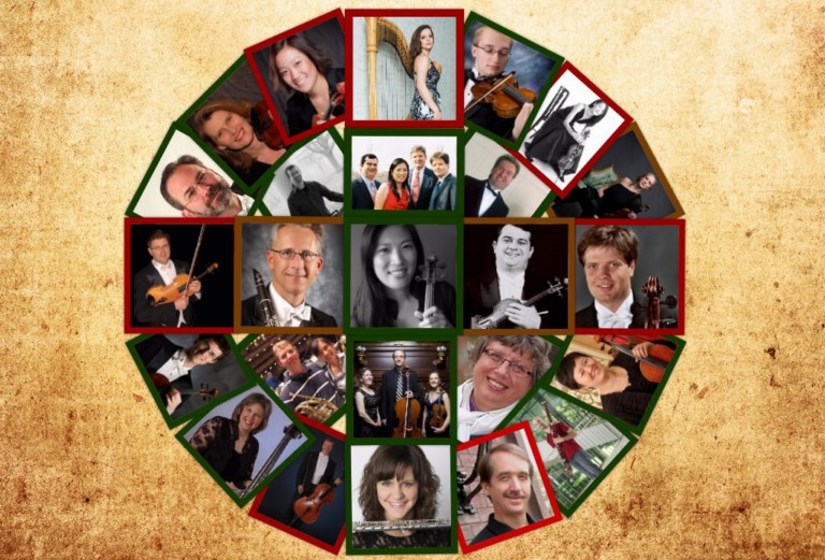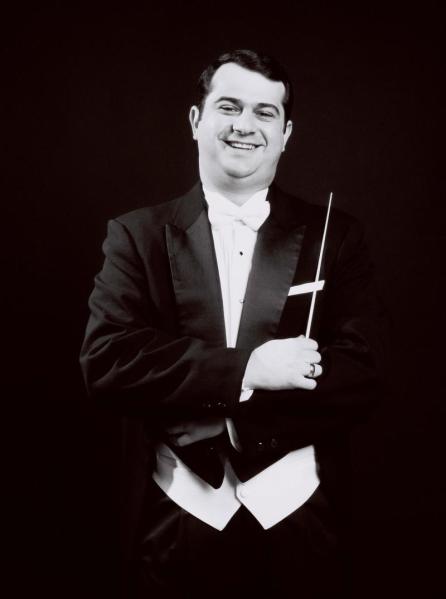New Ensemble Features Top Players
Milwaukee Musaik succeeds the Milwaukee Chamber Orchestra, plans varied season.
A strong classical music scene requires an array of outlets for talented players – symphonic, ensemble and small chamber groups. A key part of that balance, the Milwaukee Chamber Orchestra (MCO), performed for nearly three decades (from 1973) under the leadership of now retired Milwaukee Symphony principal oboist Stephen Colburn. (Colburn also founded the Washington Island Music Festival, which continues a tradition of chamber music in Door County each summer.) After a brief hiatus, the MCO was re-constituted in 2006 and Richard Hynson (also director of the Bel Canto chorus) was named director. Several years of memorable concerts followed, especially when the MCO performed in the acoustically perfect match of the Calvary Presbyterian Church.
No classical performing group can be sustained by ticket sales alone. The challenge to support a full chamber orchestra can be daunting. The MCO performance schedule was dramatically reduced in 2011. Then over the last several years, the MCO occasionally served as the orchestra accompanying Bel Canto chorus concerts. Some of those concerts, such as the massive performance of J.S. Bach’s Saint Matthew Passion in the spring of 2015, continued to demonstrate the value of a professional chamber orchestra.
Now the MCO has been reconstituted for a third life. The new format, rechristened as Milwaukee Musaik, will function as an umbrella for a changing configuration of players. Most players will be drawn from the Milwaukee Symphony Orchestra‘s ranks. The performers have formed a self-governing board and named an Advisory Council to offer consultation and support. Alexander (Sasha) Mandl, known to many as a guiding member of the Philomusica Quartet, serves as president of the board. He will also conduct when ensemble size requires it.
Three concerts have been announced for early 2016, starting with a primarily string ensemble next Monday evening at 7:30 p.m. at Wisconsin Lutheran College.
The inaugural concert brings together 15 string players plus a harpsichord and timpani. Mandl will conduct. The ensemble will survey a selection of music that usually features a group of soloists in dialogue with the larger group – a format initially known as “concerto grosso.” Mandl notes the concert will observe a progression, “starting with the masters of the string tradition, the Concerto Grosso (a few solo voices within)” then playing a work exemplifying “the baroque Concerto ritornello form (solo/ripieno, in this case four violins),” then a work in “the Concertante form (multiple soloists with cadenzas and a more independent role between solos and orchestra).” Then ending with the complete integration of voices in a work with “a Romantic string orchestra where all voices are of equal importance.”
Soloists featured for this concert are Milwaukee Musaik’s Concertmaster Jeanyi Kim; violinists Timothy Klabunde, Dylana Leung, Yuka Kadota, and Alex Ayers; violist Erin Pipal; cellist Scott Tisdel; bassist Catherine McGinn; and timpanist Thomas Wetze.
Arcangelo Corelli mastered the concerto grosso form, allowing individual artists to rise within a platform of supporting players. His Concerto Grosso in D major Op. 6, No. 1 (1714) offers the full energy of late Baroque music.
Antonio Vivaldi allows four violins center stage in an exciting demonstration of virtuosity. The Concerto for four violins and cello in B minor, Op. 3 No. 10, RV 580 (1711) is every bit as dramatic as the better known “Four Seasons” concertos.
Wolfgang Amadeus Mozart wrote a tuneful diversion, Serenade no. 6 in D major Serenata Notturna, K. 239 (1776), meant to be offered in the background at an evening soiree. A string quartet (two violins, viola and bass) introduce immediately endearing melodies in a spirit of fun with references to the local Viennese scene – a genteel march, a country minuet and lively rondo. The quartet and the remaining ensemble develop the melodies in a sophisticated dialogue throughout.
Leoš Janáček composed Idyll for String Orchestra, JW 6/3 (1878) at age 24. (He was a love-smitten old man when the works that usually identify his style were written.) This pleasant work taps some of Baroque dance styles while offering a 19th century perspective directly influenced by Antonin Dvořák.
The concert begins at 7:30 p.m. next Monday at Wisconsin Lutheran College’s Schwann Concert Hall – located at 8800 W Bluemound Rd, Milwaukee. General admission tickets ($25) may be purchased at the door or in advance through the Musaik web site or through the Wisconsin Lutheran College box office: 414-443-8802. Student tickets are $15.
Unable to attend this Monday’s concert? This new effort to channel the resources of Milwaukee’s chamber music community deserves support. Visit the web site to learn about the new enterprise and offer a tax-deductible contribution.
Milwaukee Musaik’s format may be especially useful for wind players, who have fewer opportunities for small group performances. Clarinetist William Helmers welcomes the opportunity to combine string and wind players. “There’s a lot of good literature for a woodwind quartet, but the mixture of winds and strings opens up the possibilities… to some of the giants in the repertoire.” That is central to the design of the Milwaukee Musaik’s second concert. On March 1 at 7:30 p.m., winds and strings join together for three works designed to complement this configuration – a Beethoven Septet, Carl Nielsen‘s Seranata in Vano and a rarely heard Septet by a late 19th century English composer – Charles Wood. The concert will be held in Helfaer Hall at Mount Mary University, 2900 Menomonee River Pkwy.
The group’s third concert, on April 3 at 2:30 p.m., will feature a larger ensemble, including baritone, harp and piano, playing a selection of music of the first World War. The shock of that experience inspired poetry, song cycles and reflective music from English, French and Austrian composers. Also a Helfaer Hall at Mount Mary University.
Preview
-
A Sacred Choir, 70 Voices Strong
 Dec 14th, 2025 by Martha Brown
Dec 14th, 2025 by Martha Brown
-
Prometheus Trio Goes Bohemian
 Dec 3rd, 2025 by Martha Brown
Dec 3rd, 2025 by Martha Brown
-
Present Music Offers New Choral Works
 Nov 20th, 2025 by Michael Barndt
Nov 20th, 2025 by Michael Barndt


















